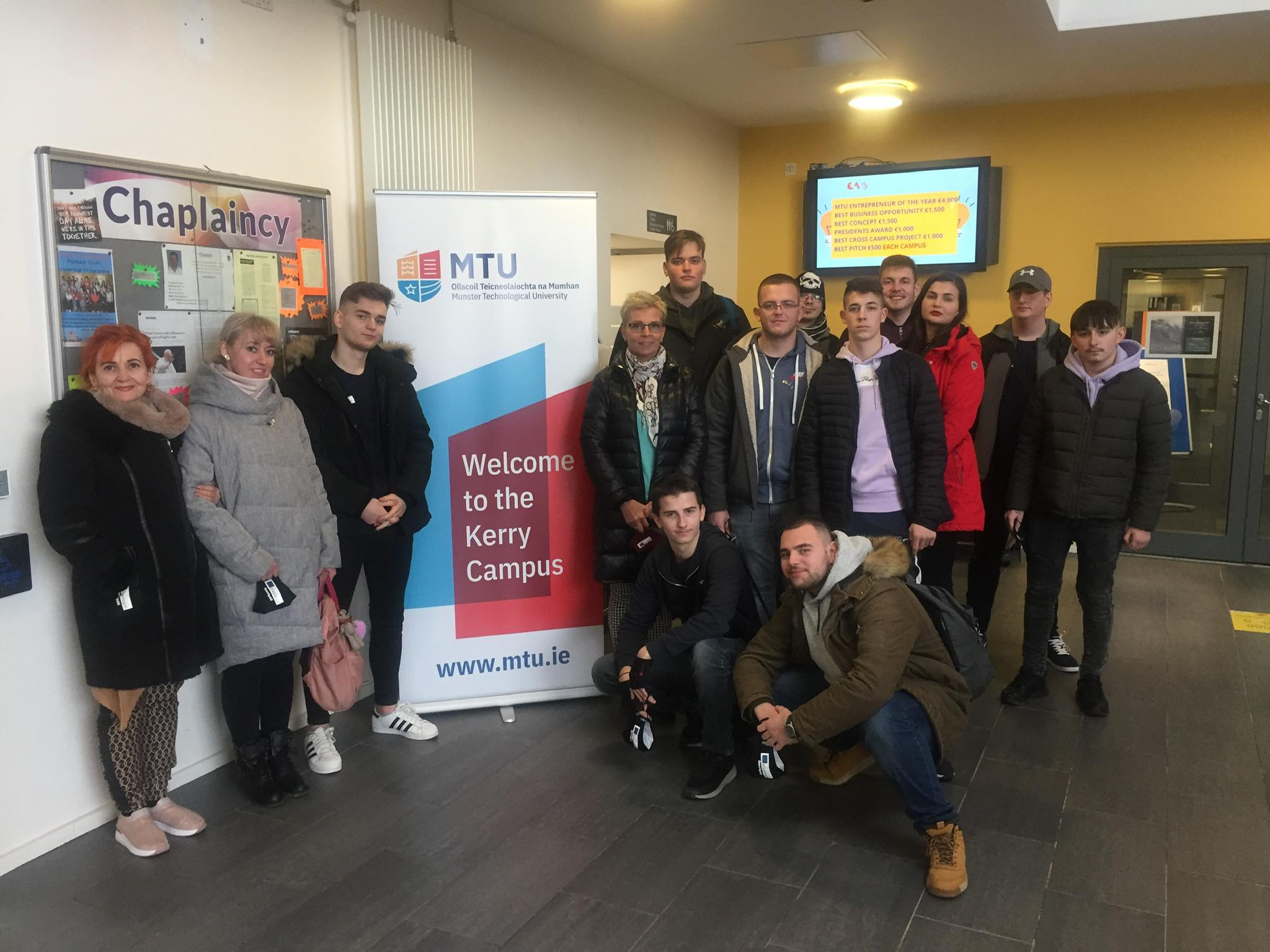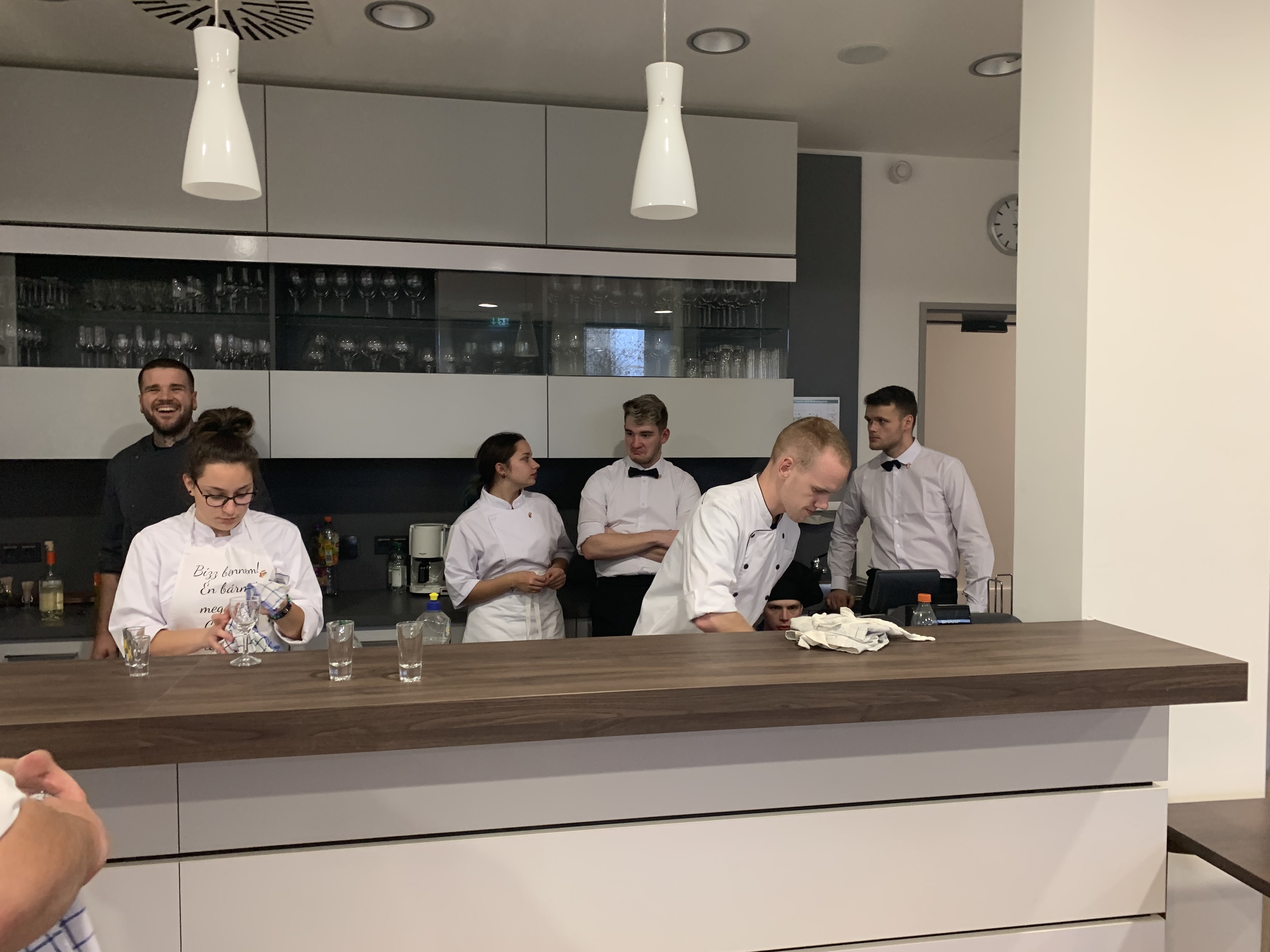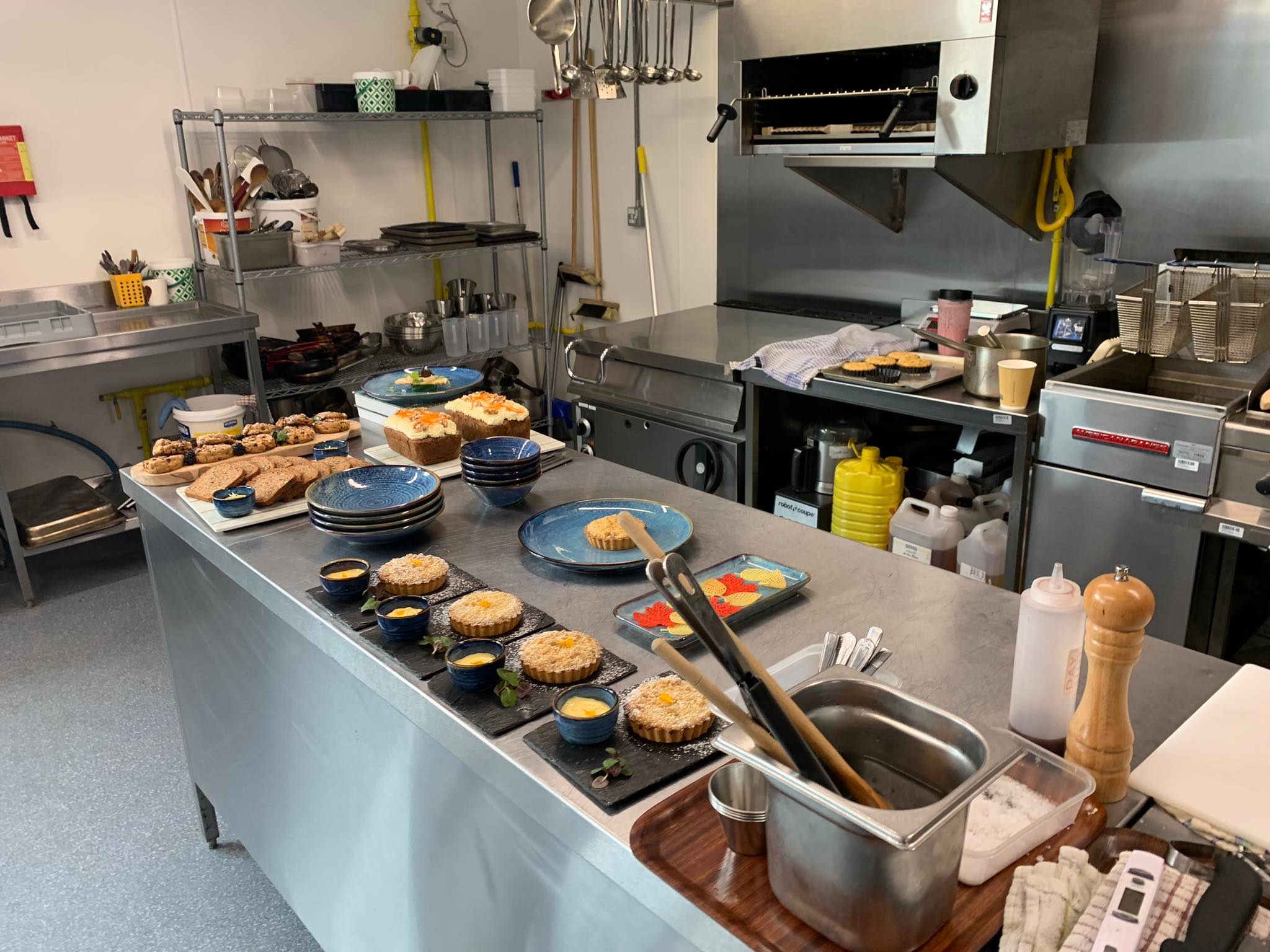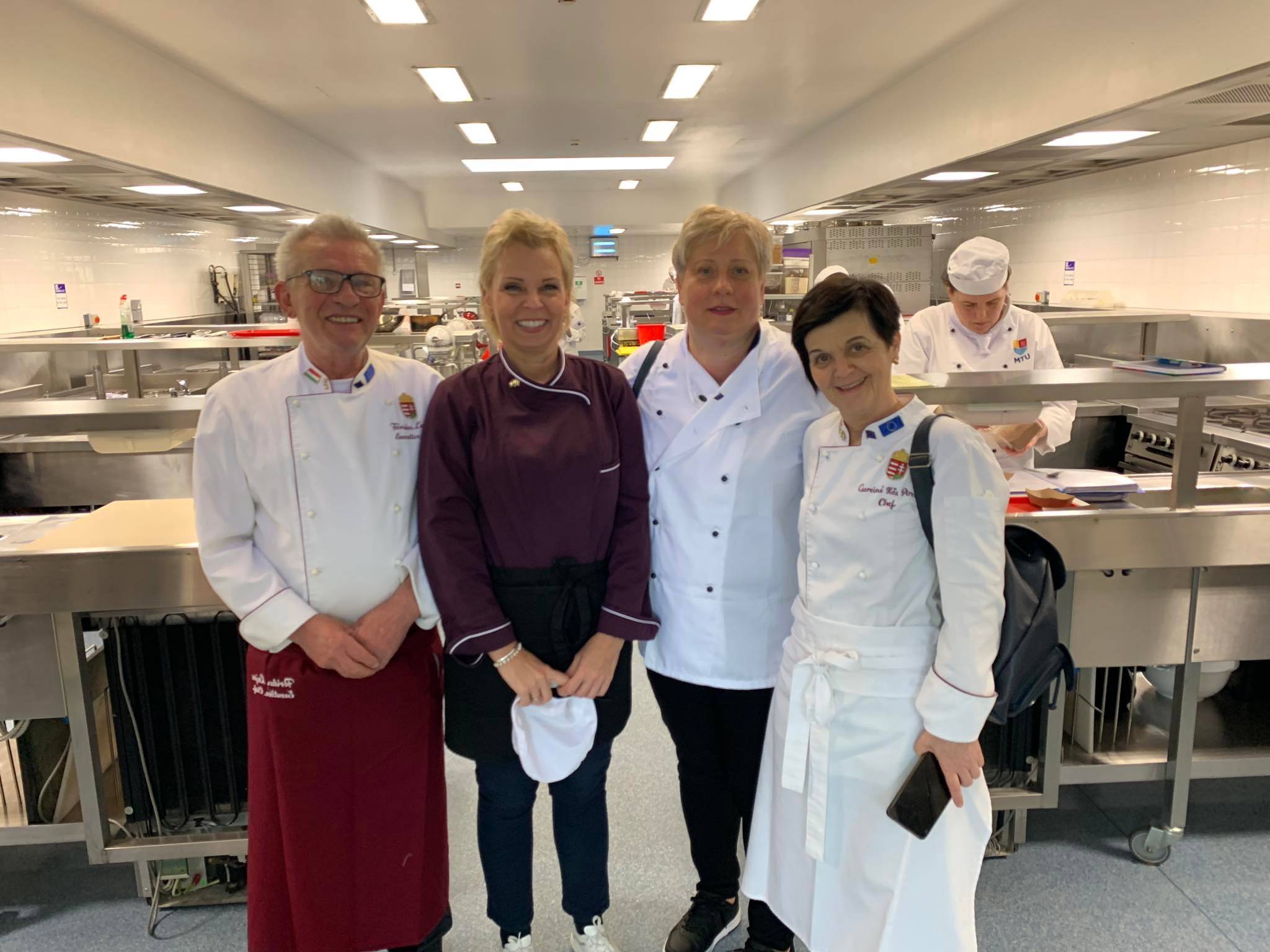
The Miskolc Centre for Vocational Education and Training has been implementing successful international cooperations for many years. The "FOOD-TOUR in the light of transversal skills" project, that won the Erasmus+ Award of Excellence in 2024, in addition to professional development, aimed at the improvement of individual competencies and transversal skills.
"Erasmus+ has given a new value to the opportunities"
The Training Outcome Requirement defines the skills required of professionals working in the tourism and hospitality sector and therefore the institution places great emphasis on the development of these skills in its vocational training.
We asked Barbara Kissné Szigetvári, the international coordinator of the institution about the project, its impact, and the Award of Excellence.
What was the key idea that motivated you to start the project?
In the whole tourism and hospitality sector, we teach subjects that are relevant to the sector. This is why we decided that event management would be the central theme of our Erasmus+ FOOD TOUR programme.
At the same time, we decided to improve the transversal skills needed for active action, such as personal development, flexibility, constructive communication and cooperation with others, problem-solving skills, creativity, and the ability to manage learning and career skills to manage career development.
In addition to sound professional knowledge, all these are expected by our dual partners. By meeting these expectations in this area as well, we also give our young graduates a better chance to find a job in the labour market.

What was the most memorable moment of the project?
The first memorable moment was the "boundless joy" when we received the notification that our application had been accepted. Then, when we reached the dissension stage, the closing event, where in the form of a high-quality event, our students and trainers could present the good practices they had acquired.
The interesting presentations and demonstrations were presented in a special atmosphere to our colleagues, our dual partners and the representatives of our sponsor, so they could see and enjoy what we had learned during the mobility while having a delicious 5-course meal and being surrounded by the design representing the traditions of the 3 countries.
The organisation and implementation of this this event was based on the experience of our previous CHEF application, also supporting the principles of sustainable catering and the promotion of organic food from local producers.

What is one project outcome that you would highlight?
Both our student and trainer mobilities helped the participants to be able to work independently and also in groups. They can plan, organise, and run a specific thematic event, from the assessment of material requirements, from estimation, decoration, and disposition to the implementation and even the post-event operations.
Once the project has been completed, it was clear that not only professional practical training but also within the framework of theoretical lessons, we have many opportunities to develop transversal skills by choosing the right method in the lessons. Group work, working in pairs, project work, and situational tasks all help the development of transversal skills, but we also believe that it is important to develop self- and group reflection to monitor progress. Good practices acquired are applied in both areas.
What difference has it made in the life of the institution? How has the impact of Erasmus+ been integrated into everyday life?
It resulted in a stronger sense of vocation among teachers and in a deeper commitment of our students to their profession.
The opportunities offered by Erasmus+ have been enhanced.
Erasmus+ has become an integral part of the life of the institution, as the benefits of the FOOD TOUR have been widely disseminated within and outside the school. We prepared small hand-outs based on what we had learned during the mobility, from which good practices were introduced into our everyday teaching, our local curricula and syllabuses. Event management, healthy eating and eco-friendly catering became an integral part of our everyday education. In a way that meets the latest needs. In addition, when we organise suitable events, our students deepen and pass on to their peers the transversal skills in practice.

How did the project impact the participants?
The impact of the project has led to a fundamental change in the attitude of the participants. In addition to making the participants more European citizens, they improved their professional knowledge, foreign language skills, digital and cultural competence, creativity, self-confidence, adaptability, flexibility to change and self-esteem. They are more entrepreneurial, more cooperative, motivated, flexible, accepting, health and environmentally conscious.
Of course, this is different for everyone but the skills they have acquired will be an advantage wherever our students find employment.
Who else can benefit from the project? Who else outside the target group/participants will benefit from the outcome?
Besides our colleagues and our students, our dual partners will also benefit from the Erasmus+ programme. In addition to the improvement of the professional skills of our students, their personal, social, cultural s and transversal skills also improved, which will enable our students to do higher quality work in the field of hospitality.

How much emphasis is/was placed on dissemination?
Our trainers and students give presentations on their newly acquired professional experience. Concerning the project results, the target audience is not only our students and teachers, but also parents, our dual partners and anyone interested in our school.
Moreover, the administration of the Miskolc, the Miskolc Vocational Training Centre, BOKIK, the University of Miskolc, and foreign partner institutions of the field are also part of the target group.
Our colleagues use their newly acquired professional experience to prepare the local curriculum, and then organise meetings every six month to update their mobility experience. In addition, in an "advisory" role, they help to organise hosted events for their students.
What does it mean to win the Award of Excellence?
Winning the Award of Excellence is a huge professional recognition, and it means that we did it well! We planned, organized, and implemented it well at an international level. It is a success story because we have excelled in our undertakings. This not only enhances the prestige of our institution but also enables us to make a major contribution to the hospitality industry in our region by providing well-trained professionals and putting them out into the labour market.
|
Applicant institution: Budapest Methodology and Social Centre and its Institutions Project title: FOOD-TOUR: in the light of transversal skills Coordinator: Barbara Kissné Szigetvári, international coordinator |
Last modified: 16-08-2024















